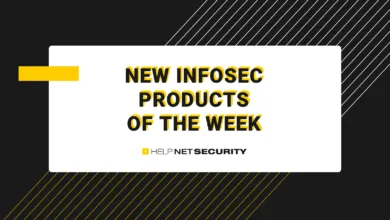Inside Google DeepMind Security: A CISO Chat with John ‘Four’ Flynn

▼ Summary
– DeepMind was founded in 2010, acquired by Google in 2014, and merged with Google Brain in 2023 to form Google DeepMind.
– John Flynn, VP of Security at Google DeepMind, developed his cybersecurity focus from early computer obsession and exposure to violence in his youth.
– Flynn believes security leaders should have a hacker mindset, defined as exploring and testing technology limits to bridge risk and development.
– He joined DeepMind to help ensure AI’s safety and benefit to humanity, viewing it as the most important emerging technology.
– Flynn emphasizes that CISOs need humility, curiosity, and the ability to hire top talent while providing them with proper context.
Google DeepMind stands at the forefront of artificial intelligence research, merging groundbreaking innovation with a steadfast commitment to security under the leadership of John ‘Four’ Flynn. Since its founding in London in 2010 and subsequent acquisition by Google in 2014, the organization has evolved significantly, culminating in its 2023 merger with Google Brain. As the VP of Security since May 2024, Flynn brings a wealth of experience from previous roles as CISO at Amazon and Uber, director of information security at Facebook, and manager of Google’s security operations team.
His journey into cybersecurity was shaped by two powerful influences. From a young age, he developed a deep fascination with computers, spending countless hours coding, hacking, and modifying hardware. Concurrently, growing up in volatile regions like Nairobi, Liberia, and Sri Lanka exposed him to environments where physical safety was never guaranteed. These experiences, marked by tear gas in schoolyards and buildings set ablaze, forged a perspective where protecting systems felt as vital as protecting people. This dual focus led him to pursue a master’s degree in computer science and dedicate his career to cybersecurity.
When asked whether security leaders should embody a hacker’s mindset, Flynn responded affirmatively. He defines a hacker as someone driven to explore and test the limits of technology, a trait he believes is essential for bridging risk management with developer intentions. His engineering background enables him to devise novel solutions that address security challenges without hindering productivity.
Flynn’s transition to DeepMind was motivated by a desire to contribute to technology with broad societal impact. His earlier work with the Peace Corps and ongoing interest in health and human rights underscored this aspiration. He views artificial general intelligence (AGI) as one of the most transformative technologies in decades, presenting unparalleled opportunities and risks. At DeepMind, he aims to help steer AGI development toward safe, beneficial outcomes for humanity.
Addressing concerns about AI reliability, Flynn acknowledges that current systems operate probabilistically, often producing varied responses to identical prompts. While some theorists propose chaotic or deterministic frameworks to explain AI behavior, he finds the probabilistic model practical for understanding and defending against emerging threats. This perspective informs DeepMind’s approach to creating resilient AI systems.
The role of the Chief Information Security Officer has expanded dramatically over time. Initially rooted in information technology, cybersecurity now demands expertise in business strategy, psychology, and increasingly, data science. Flynn emphasizes that while CISOs don’t need to be scientists, they must cultivate scientific curiosity and humility. He identifies humility as a critical trait, enabling leaders to navigate unknowns and avoid the pitfalls of overconfidence.
Reflecting on his career, Flynn highlights mentorship as a cornerstone of effective leadership. The best advice he received centered on hiring exceptional talent and ensuring they have the context to excel. He cautions against siloing information, stressing that transparency and support are as important as recruitment.
For aspiring security professionals, he underscores the value of relentless curiosity. The most successful individuals in the field often spend their personal time experimenting and learning, driven by an innate passion for understanding how systems work. He believes this mindset is especially crucial in the AI era, where rapid innovation demands continuous adaptation.
Regarding threats, Flynn observes that while attack vectors like nation-state intrusions and intellectual property theft persist, AI is reshaping how these threats are executed. AI simultaneously amplifies attackers’ capabilities and empowers defenders with tools to detect vulnerabilities, automate fixes, and generate more secure code. In his view, AI is both a challenge and a solution, integral to addressing both novel and historical security issues.
Through his work at DeepMind, Flynn strives to balance technological advancement with ethical responsibility, ensuring that AI’s potential is harnessed securely and for the greater good.
(Source: Security Week)





